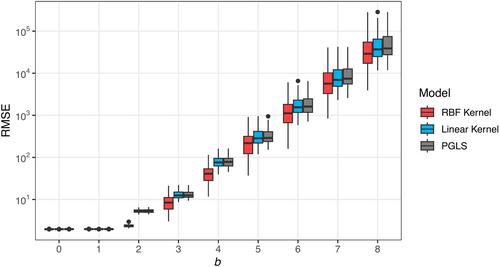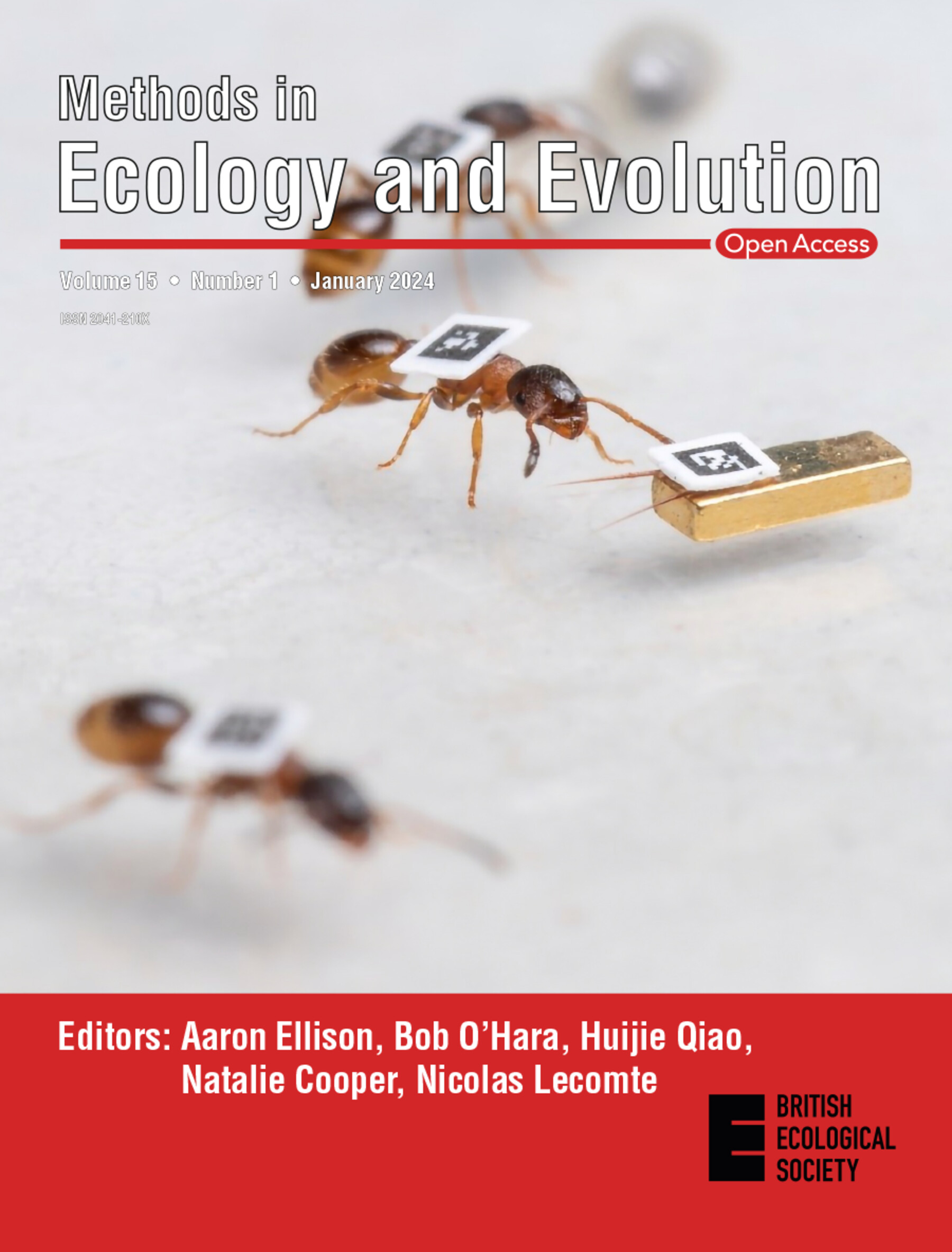Non-linear phylogenetic regression using regularised kernels
IF 6.3
2区 环境科学与生态学
Q1 ECOLOGY
引用次数: 0
Abstract

使用正则化核的非线性系统发育回归
系统发育回归是广义最小二乘法(GLS)的一种,它根据物种之间的进化关系(即系统发育关系)纳入一个建模协方差矩阵。虽然这种方法通过系统发育方差分析等系统发育比较方法广泛用于假设检验,但其考虑非线性关系的能力却很少受到关注。为了解决这个问题,我们在这里实施了一种系统发育核岭上回归(phyloKRR)方法,该方法在高维特征空间中利用 GLS,采用系统发育加权数据的线性组合来考虑非线性关系。我们使用径向基函数和线性核函数分析了两个生物数据集。第一个数据集包含形态计量数据,第二个数据集包含离散性状数据和作为响应变量的多样化率。模型的超参数调整是通过训练集的交叉验证轮来实现的。在测试的生物数据集中,当数据不表现出线性关系时,phyloKRR 与基于线性回归的模型相比,误差率(以 RMSE 度量)降低了约 20%。在模拟数据集中,错误率随着非线性程度的增加几乎呈指数下降。这些结果表明,在系统发育回归分析中引入核,为补充系统发育比较方法提供了一种新颖而有前途的工具。我们已将该方法集成到名为 phyloKRR 的 Python 软件包中,该软件包可在以下网址免费获取:https://github.com/ulises-rosas/phylokrr。
本文章由计算机程序翻译,如有差异,请以英文原文为准。
求助全文
约1分钟内获得全文
求助全文
来源期刊

Methods in Ecology and Evolution
ECOLOGY-
CiteScore
11.60
自引率
3.00%
发文量
236
审稿时长
4-8 weeks
期刊介绍:
A British Ecological Society journal, Methods in Ecology and Evolution (MEE) promotes the development of new methods in ecology and evolution, and facilitates their dissemination and uptake by the research community. MEE brings together papers from previously disparate sub-disciplines to provide a single forum for tracking methodological developments in all areas.
MEE publishes methodological papers in any area of ecology and evolution, including:
-Phylogenetic analysis
-Statistical methods
-Conservation & management
-Theoretical methods
-Practical methods, including lab and field
-This list is not exhaustive, and we welcome enquiries about possible submissions. Methods are defined in the widest terms and may be analytical, practical or conceptual.
A primary aim of the journal is to maximise the uptake of techniques by the community. We recognise that a major stumbling block in the uptake and application of new methods is the accessibility of methods. For example, users may need computer code, example applications or demonstrations of methods.
 求助内容:
求助内容: 应助结果提醒方式:
应助结果提醒方式:


